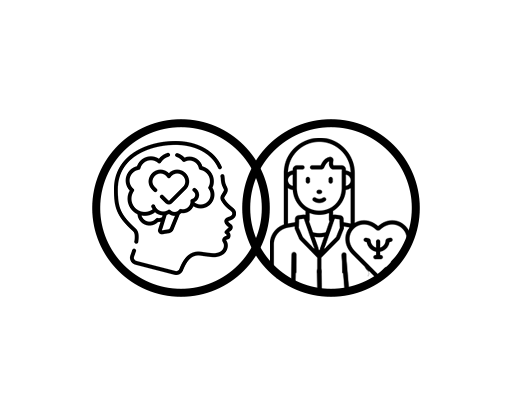Translate Feelings and Reframe Perspective
- Gain clear vision and purpose
- Freedom of choice and mindset
- Strengthen leadership qualities

Some of the benefits of neuro-linguistic programming include:
01
Overcome Limitations
Reframe beliefs and behaviour to face life with a new approach.
02
Problem Solving
Break the problems down into smaller parts to conquer easily.
03
Better Relationships
Improve communications and interactions with empathy and active listening.
04
Self-confidence
Reach into your resources to increase your competency.
Neuro-linguistic programming acts as a beneficial supporting method to ongoing psychotherapy. It guides you into the power of language for manoeuvering life.
Neuro-linguistic programming has been successful used for:
Depression
Reprogramming unconscious patterns of thought and behaviour work to alter the negative or harmful thoughts and behaviour that usually characterise depression.
Phobia
Accepting that the fear is acting as a protection from harm reduces the intensity of the triggered response. Identifying the stimulus and uncovering the tracking back to the emotions that led to fear can be done through NLP.
Memory Decline
NLP helps process the information being stored into the brain. It strengthens the other functions to cover up for the progressing memory decline so that the individual remains fairly independent.
Mood Switches
Language analysis through NLP techniques helps find the balance between the extreme mood phases and the manner in which both the phases can be softened.
Attention Deficits and Cognitive Disturbances
Unscramble the emotional, physical and mental patterns of attention deficits and cognitive disturbances by methods of controlling your mind and enhancing your senses. Build concentration and impulse control.
Benefits of Ananda
Easy bookings, no commuting needed
Express yourself without feeling judged
Choose your own therapist
FAQs
Neuro-linguistic programming (NLP) is a psychological approach that involves analysing strategies used by successful individuals and applying them to reach a personal goal. It relates thoughts, language, and patterns of behaviour learned through experience to specific outcome
NLP can improve knowledge, skills and attitudes, communication skills, self-management, mental health, reduce work stress, and self-efficacy. The biggest role of NLP therapy is to help humans communicate better with themselves, reduce unexplained fear, control negative emotions, and anxiety.
The ultimate aim of NLP is to read, understand, and decode human words in a valuable manner. Most of the NLP techniques depend on machine learning to obtain meaning from human languages.
